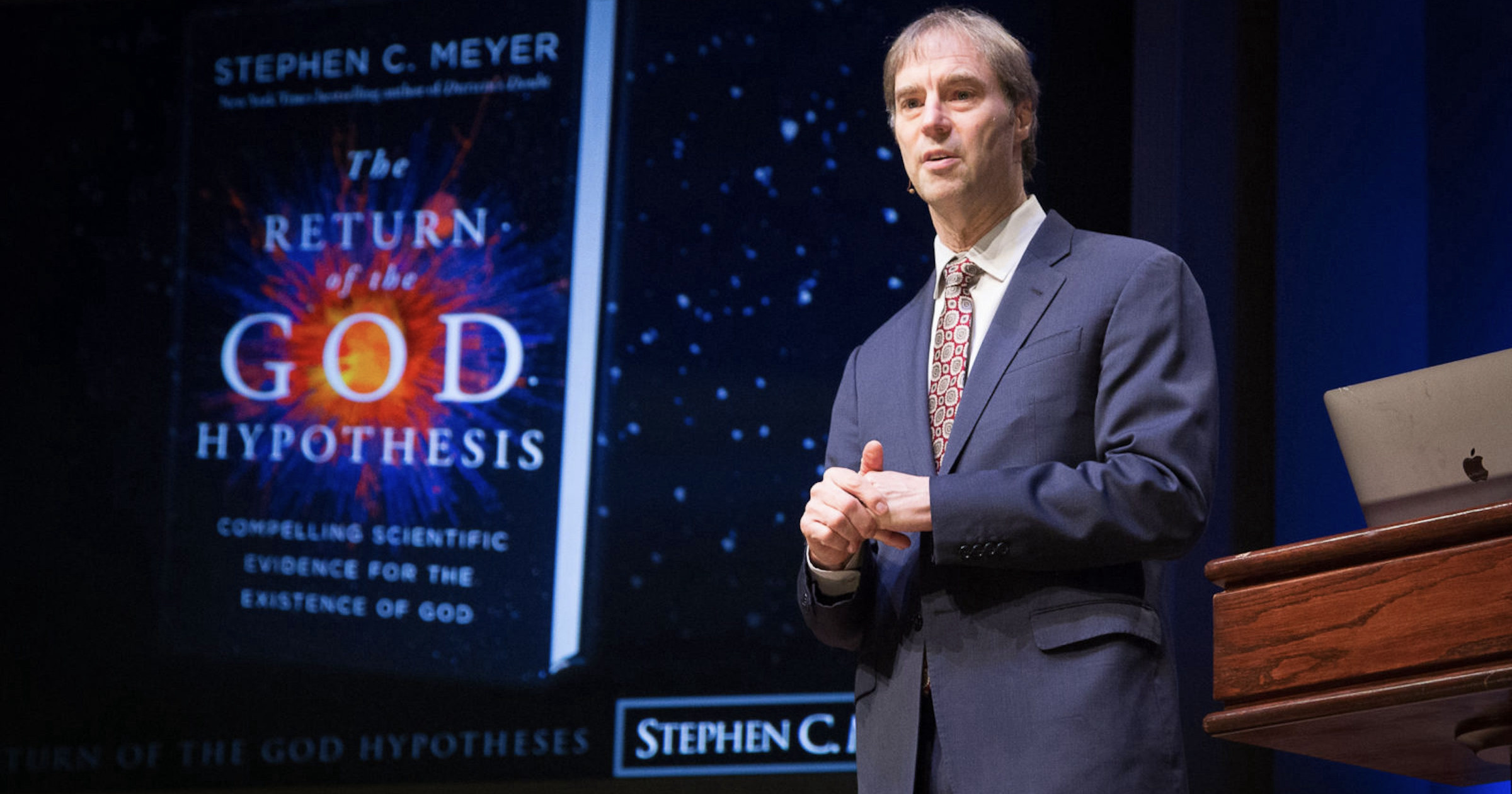 Faith & Science
Faith & Science
A Philosopher Takes on Meyer’s God Hypothesis

A great thing about the reception of Stephen Meyer’s new bestseller, Return of the God Hypothesis, is that it has been subjected to discussion, friendly and unfriendly, from a number of very different and sophisticated perspectives, including on the cosmology and the biology. Given how important the subject is, you want to see Meyer’s case probed critically for weaknesses. What was missing until now is a weighing of the philosophical side of the argument, on which much depends.
Now that’s been corrected with a debate between Meyer and philosopher and humanist James Croft. It was sponsored by the group Christian Heritage in Cambridge, England. The conversation is very genial but Dr. Croft offers a strong and aggressive critique about the nature of abductive inferences, and more. His three main points are what he calls the “Background Knowledge Problem,” the “Fallacy of Suppressed Evidence,” and that, as he sees it, the “Totality of Evidence Favors Naturalism.” I would say Meyer responds to these handily. But it was helpful to see him do so. Please do watch it:
Croft is charming as an interlocutor, and he did his homework. He even read Steve’s Cambridge PhD thesis. He absorbed the case that Meyer makes in Return of the God Hypothesis and while accepting the science (just for the sake of argument!), he doesn’t concede the philosophy, even as he speaks its language.
Mind-Body Dualism
This is not a criticism, but there might be a tendency to try to zing Meyer on technicalities, like the question of mind-body dualism. Well, philosophers are entitled to do that. Croft:
I think that a lot of the force of the inference you’re drawing to agency on the part of God actually relies on a prior metaphysical assumption which is mind-body dualism — and I reject mind-body dualism. I’m a thoroughgoing naturalist. I think mind and brain are essentially the same thing. And so because of that, your positing a disembodied intelligent agent to explain things, which you think are similar to the actions of embodied physical agents like ourselves, is a non-starter because I don’t share your dualism.
Meyer replies that there’s no such presupposition in his argument, which relies only on what we already know about minds from our own direct experience of them.
My argument does not depend on mind-body dualism. Rather it only depends on a pre-theoretic awareness of the causal attributes that we ourselves have as minds. As self-conscious agents we have direct introspective awareness of our minds. And it is an entity that has something like those powers, that we know we have by such direct introspective awareness, that is responsible for the production of information.
In the debate, Dr. Meyer promises to offer readers a chapter from a book I edited, Debating Darwin’s Doubt, that addresses this last point at greater length. It is, “Denying the Signature: Of Minds and Causes.”
Meyer adds, “Dr. Croft’s background in analytical philosophy and his willingness to read my work so carefully in his preparation for this debate made for an excellent, high-level discussion about the reasoning to design, and I’m grateful to him.” Agreed.
